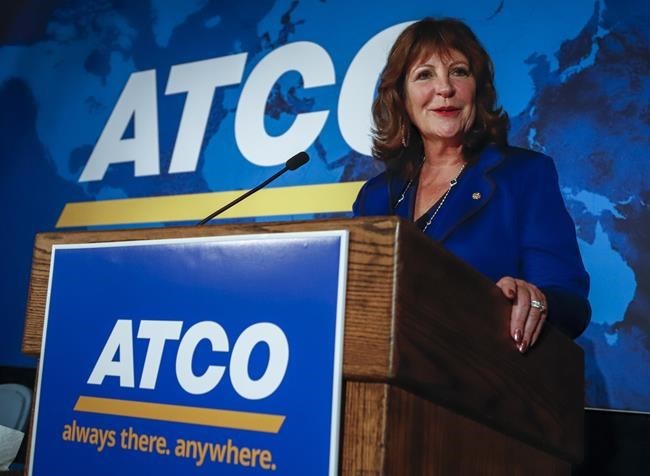CALGARY — Atco Energy Solutions has announced the construction of a new facility that will use the byproducts from organic waste to produce "renewable" natural gas.
The facility, a first for the Calgary-based company, will be built north of Vegreville, Alta. and should be up and running by late 2022. It will process agricultural manure and other organic waste products from nearby municipalities, harvesting the methane emissions that would otherwise be released into the atmosphere.
The facility will also produce fertilizer as a byproduct, to be used by local farmers. Vegreville-based biofuels company Future Fuel Ltd. will partner with Atco to develop the project.
Mike Shaw, senior vice-president for Atco Energy Solutions, said the facility will be one of the largest renewable natural gas facilities in Canada once completed. He said it will produce enough natural gas to heat 2,500 homes per year and reduce carbon emissions by 20,000 tonnes annually.
"One tonne of methane emissions is equivalent to about 28 tonnes of C02 emissions on a greenhouse-gas equivalency perspective," Shaw said. "Fugitive methane emissions from things like wastewater treatment, or from organic decomposition — those are significant contributors to greenhouse gases."
While the Vegreville facility will be Atco's first renewable fuels project, Shaw said it is in the process of developing others to help meet its climate change and sustainability targets. Renewable natural gas can be produced from a variety of feedstocks, including residential and commercial organics, waste from water treatment plants, and landfill waste. It can be injected into the existing natural gas grid just like conventional natural gas.
With its history of gas handling and upgrading, Atco is uniquely suited to move into the renewable natural gas space, Shaw said. He said Canada produces six petajoules (PJ) per year of renewable natural gas currently — less than one per cent of the country's overall natural gas usage — but has the potential to generate up to 150 PJ per year, according to industry estimates.
"There's only a couple dozen of these facilities across Canada today, but we do expect to see significant growth in this space," Shaw said.
In addition to renewable natural gas, Atco is investing in hydrogen as part of its overall climate-change strategy. The company is partnering with Suncor Energy Inc. on a potential hydrogen project to be built near Fort Saskatchewan, Alta.
That project could produce more than 300,000 tonnes per year of hydrogen and reduce Alberta's carbon emissions by more than two million tonnes per year, Atco said. The project is still in the early design stage.
This report by The Canadian Press was first published July 9, 2021.
Companies in this story: (TSX:ACO.X, TSX:SU)
Amanda Stephenson, The Canadian Press



